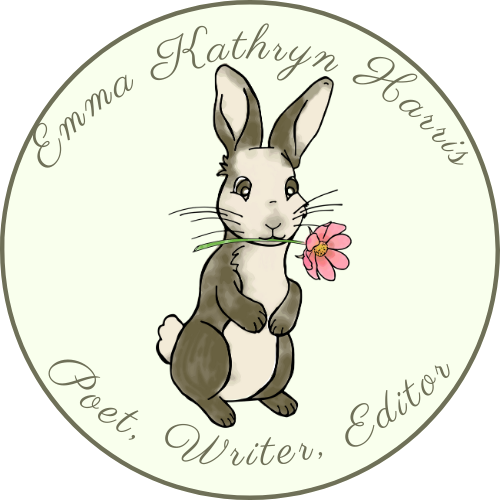Writing your name can lead to writing sentences. And the next thing you’ll be doing is writing paragraphs, and then books.”
Henry David Thoreau, poet, essayist, philosopher
Starting out as a writer, trying to garner attention from your potential readers and future fans, is not an easy road. Otherwise, everyone would be doing it. And depending on what you write—poetry, essays, fiction, memoir, content marketing—there are a variety of avenues for each genre and skill.
While I have been writing and editing professionally for over 20 years, the majority of my content I’ve produced has been in the corporate and business space. The work has also been focused on internal writing, behind the companies’ walls, and so my portfolio is miniscule because it is confidential and/or intellectual property.
And full transparency: while I have about nine essays pitched, some to multiple media outlets, none have yet seen print (or online). Currently I have 33 poems submitted to nine literary magazines, and so many more over the last few years that have been rejected. None of my poems have been in print either. The same goes for my fiction.
I don’t take the rejections personally as these are all subjective, relying on the right person, the right publication, the right time, and I just cannot seem to hit the mark.
But I continue writing. And I have years of nonfiction, business, branding and marketing content, and more under my skill belt. Which is why I am comfortable writing this article because not only has the process shaped my writing over the years, but I also pay attention to others in the publishing industry and how additional writing helps advance the writing career.

Write a variety to sharpen skills
The main reason to continue writing a variety of materials is to sharpen your skills. Everyone learns at a different pace. However, for those of us who have written hundreds or more articles, content, and books, we can attest that we are more skilled than we were when we started. That, of course, goes with anything.
Your interest might lie strictly in fiction. That’s okay. You learn to write what you enjoy, and it still takes practice to sharpen your writing skills. Allowing yourself other avenues, such as writing poetry, or business, might open your mind to seeing phrases and images in ways you might not have noticed had you remained in one genre.
For example, poetry teaches us to write tight, meaningful short phrases. Our aim is to create an immediate image or vision for the reader, to have him instantly captivated, so that he will continue reading.
In turn, the skills we use with poetry can translate into our fiction because although we have more pages and space, we are trained to use such purposefully and methodically.
Content marketing allows us to be more creative. We often write for our clients (or employer) and learn to communicate between them and our readers. This skill can teach us to write with our audience in mind even if we are writing a work of fiction or our memoir.
Be open to writing an array of styles with the purpose of sharpening your writing skills.
Allowing yourself other avenues, such as writing poetry, or business, might open your mind to seeing phrases and images in ways you might not have noticed had you remained in one genre.

Write a variety to create your platform and reputation
Starting our writing career with articles, essays, or short stories, can be a quicker win than novels and memoirs. The more you write and are eventually published, the more your future readers will take notice.
You want to begin establishing your writing reputation (the kind of writing you do) and your platform long before you publish your first book. This is known as your author brand. You are attracting a distinct readership. By the time your book is written, you will have a following who is willing to support you.
Think long term, or at least, as far down the road as you are able. For example, I have a good idea of where I desire to end up, and my essays are focused on the subjects I eventually plan to turn into longer works, such as novels. This focus is also helping me to find my audience, via the mediums I am pitching. In addition, I avoid tossing my hard work to the wind, hoping it will drop into the right person’s lap. It takes effort, hard work, tons of research, trial and error, tenacity, courage, and a really long time to build one’s reputation.
If you are planning (or already writing) a memoir, nonfiction book, novel, or any other genre, your essays will go a long way in highlighting your knowledge. You might author essays based on the very subjects you are writing in your longer work (or will write), thereby establishing your credibility early.
Another key to writing and publishing your work, even if it is on your website or social media, means you are learning what writing you enjoy, and what draws you. As your writing matures, so does your writing career vision. For example, you might decide writing fiction is your dream goal. However, as you write articles for the media to pay some bills, you might decide freelance journalist is more your forte. Or writing a nonfiction how-to business book on a subject you’ve come to research is where you feel most comfortable.
Again, remain open to possibilities. Publishing credentials help establish your abilities and reputation, but more than that, your work is helping you become a better writer.

Learning to accept rejection, suggestions, and critique
The more we write, the more we face rejection, unsolicited suggestions, and helpful or critical critiques. It all comes with the territory. But it helps us to develop a strong backbone because without one, we could never make it as a writer.
Honestly, the idea that any writer today can have an attitude and think his writing is a gift to the world, is outdated and dissolved with Tom Wolfe. No one likes to be around someone like that. Truthfully, the more professional you are, the more marketable you are. And in this age of publishing noise where almost anyone can be a published author and we are competing with both quality and junk, we need all the help we can get to develop a loyal following.
First, don’t take rejection personally. As I mentioned at the outset, it has more to do with timing than anything else. You could be a truly amazing writer, but even the best work takes time to settle into the right home. Many writers we have come to admire today took years and multiple rejections before their Pulitzer Prize winning masterpiece was published.
Second, take suggestions and critiques with a grain of salt in some cases, and valuable insight in others. Everyone is a critic, but sometimes critics have interesting remarks that we could use to improve our work. Ignore the ones who simply criticize without offering substantial information.
If you receive critiques from editors, publishers, and even clients, listen attentively. Editors and publishers, especially, know the business. They want you to succeed. If they are offering advice, they are doing it with the intent of selling your work. They see your potential and desire you to become a great writer.

Your writing career
Whether your goal is to become a poet, a novelist, memoirist, or content marketer, you are building your writing career. All the above will help you shape, not just your writing, but who you are as a writer.
Sometimes, our path takes us in a different direction or a longer detour than we anticipated. Try to see the positive in that it is shaping your writing skills. Be open to trying new things. Focus on becoming a better writer, enhancing your professionalism, and learning what you can about various aspects of the business.
Above all, keep writing what you love, no matter what roadblocks you encounter.



